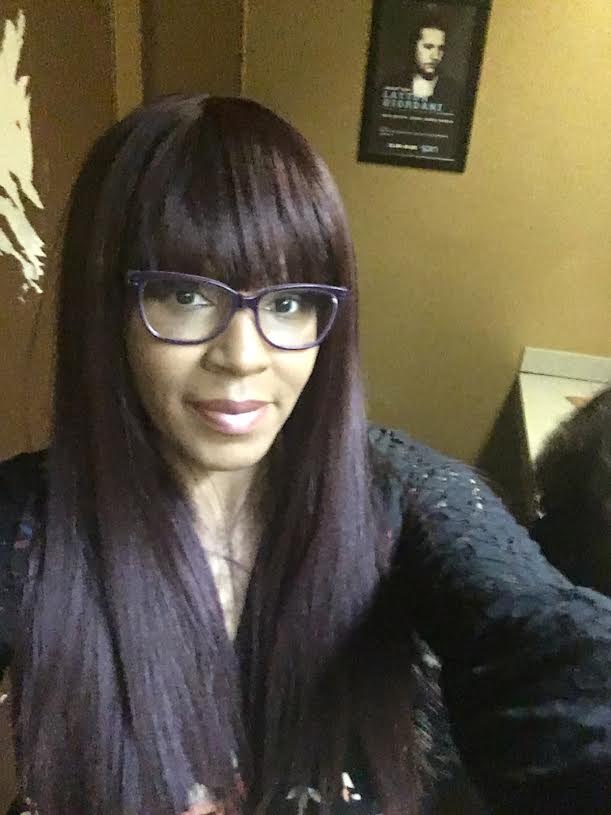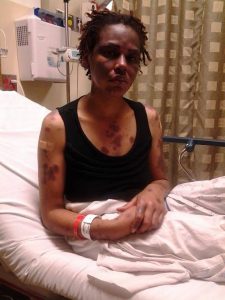
By Edward Henderson
There is a tremendous power in choosing the perspectives we view circumstances in our lives. While finding the silver lining in situations that arise is admirable, the emotional strain that comes with it can be difficult to manage. For Shakita Jones, her Lupus diagnosis could have broken her. While there have been and continue to be difficult moments, Jones leans on faith and self-love to find joy in life and educate others on the disease that is very common in our community.
Jones moved to San Diego from St. Louis, Missouri at a young age with her family. Blown away by the weather, palm tree’s and red trolleys, Jones enjoyed her early years in Southeast. From the ages of 12 to 18, however, she had to look out for herself along with her siblings after her parents got involved with drug addiction.
Jones struck out to build a family of her own. She got married at 18, moved out and had first child. It was around this same time she became ill. Jones experienced fatigue along with muscle and bone pain. Doctors attributed the pain to anemia and being a young mother but Jones felt otherwise.
“I thought they took my diagnosis lightly because I had medical and they didn’t care about a black person with government insurance,” Jones said.
In the summer of 2011, Jones noticed a small spot on her nose. It took a long time to heal and while she was always curious about what it was, she never went to a doctor. The following year, Jones became very ill and was in and out of the hospital. She eventually found a doctor that thought she might have Lupus and diagnosed her after a biopsy.
Lupus is a systemic autoimmune disease in which the body’s immune system mistakenly attacks the body’s healthy tissue. The course of the disease is unpredictable, with periods of illness (called flare-ups) alternating with remissions. The disease mostly affects black women between childbearing ages to 44.
“After they told me I had Lupus I was really scared because my Aunt died of Lupus and I thought my children would be without a mother,” said Jones.
The disease mainly affected her skin at first. It appeared as if she had a really bad sunburn all over her face and arms along with chronic pains in her body. The bruises on her skin eventually went from looking sunburned to being pitch black. Doctors instructed Jones to wear sunscreen and wear thick clothing to prevent more damage to her skin.
“That was difficult for me to handle because I became afraid of going out in public because people would look at me like I had leprosy or something,” said Jones. “Cashiers didn’t want to hand money to me because they thought I was contagious.”
As the fatigue and mounting psychological trauma surrounding Lupus and the ostracism from those around her began to pile on, Jones had a critical decision to make. She could buckle under the pressure and let her circumstances consume her entirely, or look at her diagnosis as a blessing and turn her trauma into triumph.
“I told God I wanted to face the anxiety and fear I was going though,” said Jones. “I stopped wearing the hijabs and started educating people. Whenever a child would say something about my face I would educate them about what Lupus was.”
Jones started speaking at churches and health fairs telling educating people about Lupus, it’s affects on our community and how is isn’t contagious. After joining the Lupus Foundation of Southern California, she realized many of their services weren’t coming to the Southeast community and took it upon herself to start some of her own.
“When I found out I had Lupus I felt like I was all by myself and there wasn’t anyone I could turn to,” said Jones. “I felt really alone during my time with Lupus but once I started educating myself and stopped living in the pain of it I realized I couldn’t let it control my life.”
Her support groups focus on advice when dealing with doctors, alternative methods to care for skin affected by Lupus and managing the mental health issues that can arise with the disease. Helping others has proven to be a cathartic experience for Jones. The more she’s used her life with Lupus as a beacon of hope for others, her relationship with herself and her happiness has deepened as well.
“I’ve come to love the woman that I am,” said Jones. “I think she’s wonderful, precious and deserves to have the best. Even when my skin looked horrific, took pictures of myself and I still smiled. I like to see how far I’ve come and that’s encouraging to me on those days where I feel like I can’t go on. I was determined to have joy.”
Jones’ support group ‘Lupus Warriors United’ will resume in September on every 4th Sunday at 3436 College Avenue. For more information contact Shakita via e-mail at [email protected].




